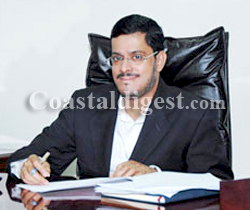
Dubai, Jul 8: A Saudi-based Indian businessman has secured the release of a compatriot serving a jail term in the Gulf Kingdom for killing a local resident in Jeddah by paying blood money to the family of the victim.
Indian businessman Mohammed Alungal paid a sum of Rs 36,13,000 on behalf of Vinish Pappachan, who had been ordered to pay the money as diyah (blood money), it is said.
Pappachan, who hails from Kerala and worked as a driver, was held guilty of causing the accidental death of a Saudi national in February 2012 when the earth-moving tractor he was operating collided with a car driven by the victim.
When the court directed that blood money be paid, Pappachan's family from Idukki in Kerala approached the local government for help, who coordinated with social workers in Saudi Arabia to speak with the victim's family.
It was then that Alungal, chairman of Abeer Polyclinic Group, came forward to pay the full amount.
"I just want to fly back home as early as possible. Every single hour seems to be a year or more for me now," said Pappachan after his release from prison.
"I have a fresh lease of life thanks to Mohammed Alungal and Kerala chief minister Ommen Chandy. I feel like a free bird now," he added.






Comments
Add new comment